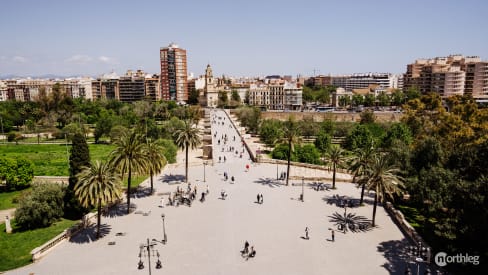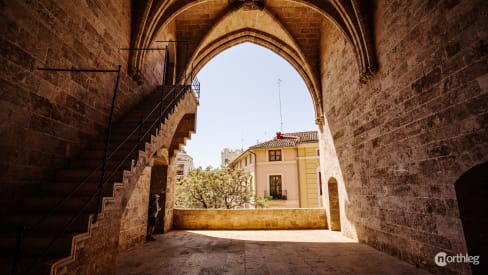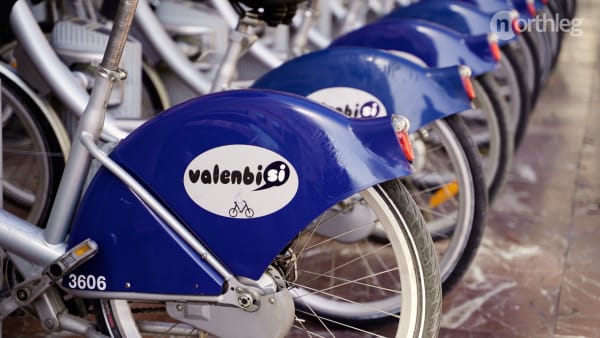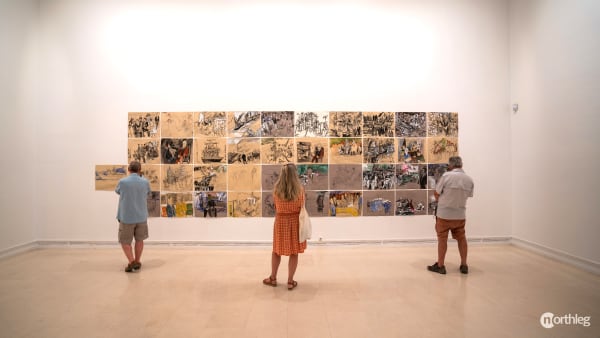Curiosities
Curiosities
Do you know where the name of the Towers comes from? And do you know what popular saying people believe to be referring to Valencia’s gateways? In this section, you can find out about some curiosities and myths linked to the Torres de Serranos, as well as read about the many functions this construction had over the centuries.
The name
The term Torres de Serranos (or Serrans in Valencian), comes from the travellers that used to enter the city from the gate. The gate is in fact located at the northern edge of the Old Town. Travellers from the Serranía area, also called Serranos, used to be the most frequent users of this entrance, so the gate and the Towers themselves became “of the Serranos”.
Serranía is one of the most mountainous regions of the Valencian Community, located northwest of Valencia. It is crossed by the river Turia, which flows in several stretches through narrow gorges, creating scenic landscapes.

The same name was later passed onto the bridge that stands in front of the gate as well. The bridge, now called Puente de Serranos, dates back to the 16th century. However, some maintain that in the same location there used to be another bridge dating back to Roman times.
Valencia’s moon
You might have heard a Hispanic person say estar en la luna de Valencia (to be on Valencia’s moon) to mean that someone is not focused or absent-minded. Many believe this saying has to do with Valencia’s gateways.

The popular belief is that in the past, when the walls of Valencia still stood and the gateways were the sole entrances to the city, there used to be a curfew of sorts. This meant that the gateways would be closed for the night after a certain time.
Many distracted and forgetful people would not arrive in time to enter the gates, and thus had to sleep outdoors. In the streets, outside the city walls, the moon would look at them and remind them of their absent-mindedness.
A prison for noblemen
Between the 16th and 19th centuries, the Towers were used as a prison for nobles. In fact, we can still see a bell on the south-facing side of the gateway, the one that faces the Old Town. This bell was used to warn the population in case a prisoner managed to escape, which was not as uncommon as one might think.

However, over the years, the sad appearance of the Towers converted into prisons and the unhealthy conditions in which the inmates were kept, repeatedly moved the people to protest. The inmates were finally transferred to better conditions in 1888.
A safe house for paintings
During the Spanish Civil War, the Towers were used to save several artworks from the Prado Museum in Madrid. Of course, measures had to be taken to prevent damage to the pieces.

First of all, the paintings were placed on the lowest floor, to avoid damage in case of a collapse or bombing. A vault was then built over this floor. This consisted of a 90-centimetre layer (about 3 feet) of reinforced concrete, covered by one metre (about 3.3 feet) of rice husk, and another one of soil.
Another metre (3.3 feet) of soil was laid on the second floor, and the terrace was covered with sandbags. Finally, an automated humidity and temperature control system was installed.
The Crida
At present day, the Serranos Towers are open to the public, but they are also used for some official Valencian ceremonies. The most famous of these is the Crida, the official opening ceremony of the Fallas festival.

On the last Sunday of February, the Fallera Mayor (the elected “queen” of the Fallas festivities) declares the opening of the festival from a platform erected in front of the building.
You can read more about this event in our article about the Crida.















